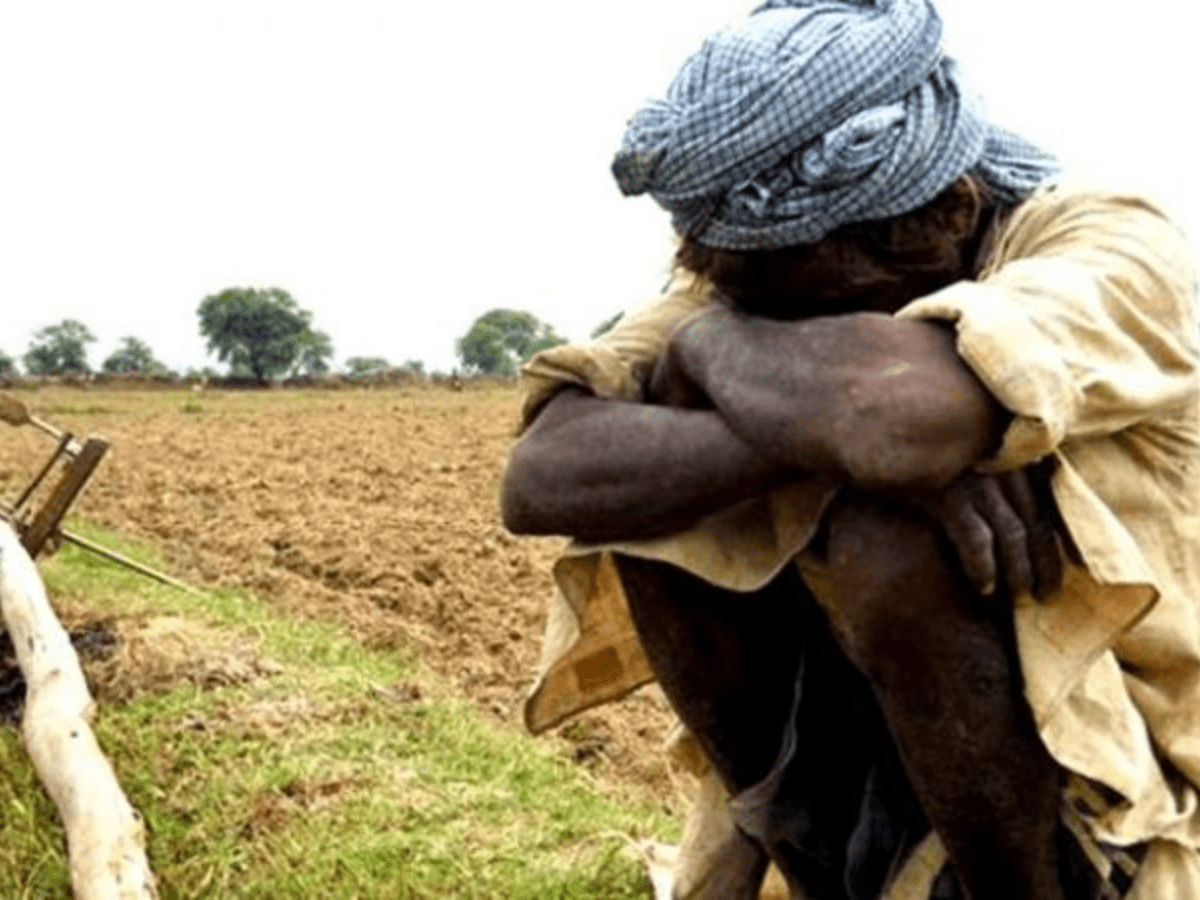
Hyderabad: With drought conditions on one side, and hailstorms/ unseasonal rains on the other, Telangana farmers are facing a war on two fronts. Depletion of groundwater and drying up of borewells has forced lakhs of farmers to go on an undeclared crop holiday in the present Rabi 2024 season.
Suman Rao, a farmer from Malkapur village in Gudi Hathnur mandal of Adilabad district lost Jowar in 2.5 acres where he was cultivating those millets. Strong winds coupled with rains in Indervelli and Gudi Hathnur mandals on Tuesday night, have destroyed Jowar crops on thousands of acres. This was just a week before the harvest.
Jowar cultivation has more than doubled in the Adilabad and Nirmal districts when compared to the last Rabi season. According to the agriculture department’s data, more than 40 per cent of the total cultivated Jowar area lies in the erstwhile Adilabad district.
Other crops damaged in those areas were paddy and maize.
This was the second such unseasonal rain to affect these villages during the last week, according to Sridhar, a volunteer of Rythu Vikasith Sankshema Sanstha (RVSS).
He tells Siasat.com, that officials had not yet visited to record the extent of damage to crops as on Wednesday.
Groundnut crops and low-yield
Groundnut crops which are being cultivated in vast areas of land in Nagarkurnool and Wanaparthy districts may not be yielding much, due to less weight of the seed caused due to less availability of water. Almost 60 per cent of the area under groundnut cultivation in the state falls in these two districts.
Mango farmers/tenant farmers lose heavily
One seasonal crop has been the major sufferer due to the drought conditions and extreme weather events being witnessed across the state.
Due to very little groundwater available, farmers growing mango orchards have been finding it difficult to draw enough water for every mango tree.
“If not watered well during the fruit’s growth stage, the size of the fruit will not develop in size. The fruits won’t be able to withstand strong winds and hailstorms, and wherever there are these extreme events, the losses have been heavy during the past few weeks,” said Dr M Padmaiah, former principal scientist at Indian Institute of Oilseeds Research (IIOR).
Seenu, a young tenant farmer was one such farmer who has taken a fourteen-acre mango orchard in Chinnakodur mandal of Siddipet district on lease this year.
Despite lifting water from the closest local stream located ½ km away from the mango orchard and almost 1 km away from his paddy field, and using the farm pond in the mango orchard as the transit point to optimize the utilization of water, he has been unable to water the mango trees properly.
The worst happened towards the end of March when strong winds coupled with heavy unseasonal rain rendered 50 per cent of his already low produce, to fall to the ground. In many villages of Siddipet district, hailstorms destroyed mango orchards.
Seenu now owes almost Rs 2 lakh to his landlord as per the lease agreement but finds himself unable to pay it due to a previous debt burden of Rs 4 lakh, and more to come this Rabi season. He, however, also cultivated paddy, vegetables and pulses, in addition to mangoes.
Reservoirs drying up & groundwater levels depleting fast
During the second half of the Rabi season, the water from Anthagiri Pochamma Sagar (KLIS) in Chinnakodur and Illanthakunta mandals in Siddipet and Rajanna-Sircilla districts was emptied a month before the harvest. Farmers who had cultivated paddy and other crops on thousands of acres had to watch their paddy dry up.
In villages that come under the ayacut of the Konda Pochamma Sagar (KLIS) in Siddipet and Ranga Reddy districts, farmers had to go on a crop holiday in Rabi, as there was no water to cultivate.
According to Madan Mohan, a farmer who hails from that area, 90 per cent of the borewells in his village have dried up, and groundwater levels have depleted considerably.
Similar is the situation in the high-lying areas across the state.
In most of the drought-prone districts of Telangana, a comparison of groundwater levels shows the water levels going further down low. In Jogulamba Gadwal district, the average depth to groundwater level has gone from 5.46 metres below ground level (m bgl) in March 2023, to 8.86 m bgl in March 2024.
Average depth to groundwater levels in drought-prone regions of Telangana
- Mahabubnagar – 7.42 m bgl in March 2023, to 11.43 m bgl in March 2024
- Nagarkurnool – 7.10 m bgl in March 2023 to 10.44 m bgl in March 2024.
- Nalgonda – 7.77 m bgl in March 2023 to 11.31 m bgl in March 2024.
- Ranga Reddy – 8.90 m bgl in March 2023 to 12.57 m bgl in March 2024
- Yadadri- Bhuvanagiri- 6.86 m bgl in March 2023 to 9.94 m bgl in March 2024
The total storage in all the major reservoirs in the state has come down from 351.32 tmcft by this time last year, to 242.38 tmcft as on April 3, 2024.
